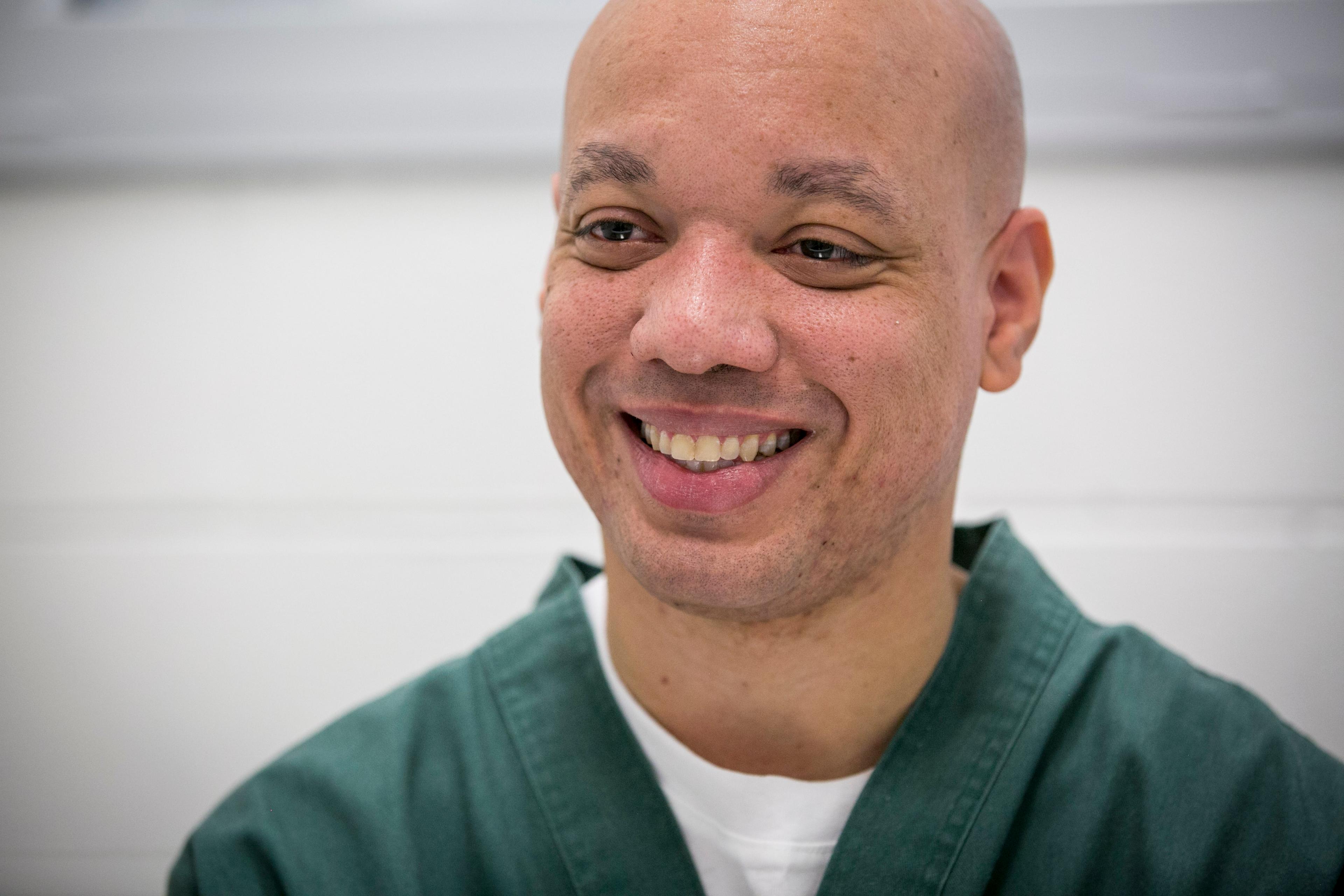
Friday was a stunning day for a man who’d been behind bars since he was 15 years old and thought he’d spend the rest of his life there.
Curtis Brooks, now 39, was on the phone at the Arkansas Valley Correctional Facility in rural southeastern Colorado with his lawyer Hollynd Hoskins in Denver when she confirmed the news. Outgoing Gov. John Hickenlooper had just granted him clemency.
After serving almost 24 years behind bars he’d soon be released.
Brooks knew the news was coming as the governor's office had spoken with him by phone in prison recently to say clemency was imminent. Brooks told his lawyer he is determined to give back.
“The people who have supported me I owe a lot to, just as I owe a lot to the victim’s family,” he said.
Brooks is one of six inmates whose sentences were commuted by the governor on Friday. It's the first time Hickenlooper has issued commutations during his eight years in office. Brooks, the only inmate who’ll be paroled in 2019, was a juvenile when he was sentenced. The five others were sentenced to life without parole as young adults.
“These decisions are not made lightly,” Gov. Hickenlooper said in a statement. “Every individual granted clemency has shown to us that they are worthy of this consideration. Their crimes were severe. It’s our belief that young offenders who have grown into exemplary individuals, and who have clearly learned from their mistakes, should be considered for a second chance.”
The governor expressed hope that all would use the “opportunity to its fullest.”
Some legal experts thought Hickenlooper, who has presidential aspirations, might shy from granting clemencies before the end of his tenure for fear he’d be painted as soft on crime in a run for the White House.
Curtis Brooks was sentenced for his part in a 1995 robbery that left one man dead. At the time, he was homeless and in an Aurora mall playing video games. He met up with three boys and at some point they hatched a plan to steal a car nearby.
It all went awry and one of the boys — not Brooks — fired a shot that killed 24-year-old Christopher Ramos. Brooks was convicted of felony murder, which at the time, carried an automatic sentence of life without parole. Since the trial in the late 1990s, there have been several U.S. Supreme Court rulings that affect inmates who got life without parole sentences when they were juveniles.
Justices point to research that’s found children’s brains aren’t fully developed, and don’t always consider the consequences of their behavior. A big change came in 2012, when the Supreme Court ruled that automatic life without parole sentences for juveniles are unconstitutional. In 2016, the high court went further, and made the decision retroactive.
States had revisit those sentences. In Colorado, it applied to about 48 juvenile offenders who had expected to spend their lives in prison. One, of course, was Curtis Brooks.
Colorado’s legislature passed a bill that said most juvenile offenders would get new sentences of 40 years to life. Those convicted of felony murder, like Brooks, would be eligible for even shorter sentences.
Still, freedom has proven elusive for most of Colorado’s 48 or so inmates sentenced when they were juveniles. Many of the cases have been caught in a slow-moving legal system.
Over the time Brooks has been in prison, he’s amassed a group of supporters that often show up at his court hearings. They include his elementary school principal, now state senator from Maryland where he lived as a child, and a former juror on the case, Bruce Grode, who regrets the conviction and fought for years for Brooks’ release. The original trial and sentencing judge also wrote a letter to the governor in support of Brooks’ release and requesting clemency.
Grode said the jury wasn’t privy to critical details in the case. They later found out the other boys, unlike Brooks, had lengthy rap sheets and that Brooks had been neglected at home.
Brooks “deserves this and I know he is so remorseful for what he’s involved in,” Grode said. “And I know he will not let anyone down ... and we’re just so excited for him.”
By all accounts, Brooks’ behavior in prison has been stellar. He’s studied philosophy and foreign languages and said he’s committed to making amends for the 24-year-old crime.
“I think it would be the biggest waste and the greatest disrespect if I just sat in prison for 24-years biding my time,” Brooks said. “My mission is to vindicate any person that has supported me in any way.”
The governor's office reached out to the family of the victim, Christopher Ramos, to let them know that Brooks would be granted clemency. CPR has been unable to reach the family, but an email from District Attorney George Brauchler's office said they were "devastated" by the decision.
“Christopher did nothing to have his life taken,” they were quoted as saying, and he “does not get a second chance at life.”
Colorado’s governor has broader powers than most in granting clemency. The state’s chief has “full and absolute discretion” in all clemency matters and he can grant “unconditional” pardons and commutations. Many other states require applicants to go through review boards and gather recommendations from outsiders, according to the American Bar Association.
Hickenlooper has just started granting pardons in the last year. To date the governor has pardoned 135 people who had already served time in prison.
Pardons wipe out someone’s criminal conviction and record, making them eligible to purchase firearms again. A commutation means the person is eligible for a shorter sentence, but they will still have a criminal record.
The governor’s office has received more than 500 applications for clemency in the past eight years, a spokeswoman said. The application first goes to the state’s clemency board, which makes recommendations to the governor’s office.
Defense lawyers point out, though, that the governor can step in at any time and make his own decisions.
CPR News’ Allison Sherry contributed to this report.
Related stories
- Imprisoned As A Teenager, Curtis Brooks Reflects On Life As A Free Man At 40
- Curtis Brooks Walks Free After 24 Years: ‘I’m Ready To Go’
- Former Juror Sent A 15-Year-Old To Prison For Life. Now He Wants Him Released
- To Keep Inmates From Coming Back, Colorado’s Prison Chief Wants To Ease The Culture Shock Of Their Release









